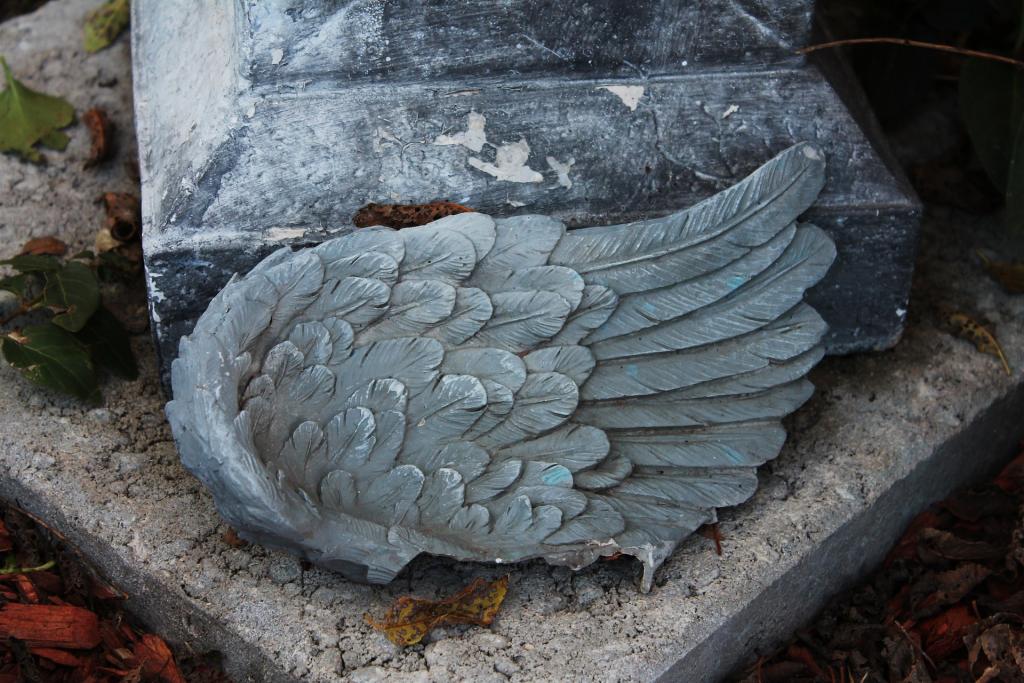
In the non-denominational Bible college I attended in my early 20’s, one of my instructors had told the class towards the end of the final semester, “In the coming years after you leave, some of you will fall away from the faith.” Knowing the genuine character of my former instructor, his statement wasn’t meant as a way of striking fear in the students, but informing them of an ongoing reality that many Bible school alumni face as they get older and experience the world. Some of my former classmates have continued to associate themselves with the church affiliated with the Bible school. Some have even continued to call themselves Christians, but have entered a spiritual slump with sporadic church attendance. Others have decided Christianity wasn’t for them. In all three cases, some have managed to find happiness, moved onto acquiring successful careers, get married and/or start families while others have had life circumstances work against their favor. In every individual case, the cards life had dealt them either motivated them to persist in their faith, coast along in complacency or forgo it altogether.
Some of those who have decided to walk away from Christianity refer to their testimonies as a process of de-conversion. The thing about people who undergo de-conversion processes is that stories and experiences vary among individuals. Some leave religion for mainly intellectual, philosophical or scientific reasoning, whereas others leave because of personal trauma and endured emotional, physical, sexual and spiritual abuse. And the processes of leaving their familiar religious communities proved to have similar effects to Post-Traumatic Stress Disorder. This has given way to a medical term known as Religious Trauma Syndrome.
It would come as a surprise to some of my religious readers that Religious Trauma Syndrome is a legitimate psychological diagnosis. Though I would emphasize caution as to not dismiss it as some form of leftist persecution. With all this talk of safe spaces when it comes to mental health, especially within Christian circles, I think this is a topic worth addressing.
Although I currently do not identify as an atheist as I write this article, I find the experiences of many of my formerly-Christian friends resonate with my own. I have my own traumatic experiences associated with religion and have undergone my own form of ‘de-construction’ process — though one that doesn’t involve conversion to a non-faith. I was raised in a Roman Catholic home with a sibling who had autism. My family had faced an underlying prejudice in our community (partially due to the speculation that having a child with a disability is somehow the result of unabsolved sin). I abandoned Catholicism and converted to Evangelical Protestantism in my last year of high school, which had caused a rift with my family. I worked for a Christian friend’s construction company, only to be subject to an emotionally abusive working relationship due to his fundamentalist beliefs. I later attended a one-year, part-time discipleship program at a Bible school and attended a Brethren church associated with it. But after my firstborn son came into the world, I began to find myself disillusioned with Evangelical culture. I briefly wandered into the realm of Progressive Christianity while still attending the same church, though I found myself having an existential crisis in 2014 (a topic worthy of it’s own article). Reflecting on these events, I think a combination of post-partum feelings of isolation and feeling brushed aside by some members of the congregation played a role in my decision to leave Evangelicalism. Though after reconnecting with some Catholic friends I had met during my Bible school year, I started going to Mass again in 2015 and eventually returned in communion with the Catholic Church in 2016 with a newfound appreciation for the faith.
While some would probably say that I only returned to Catholicism because I grew up in it, I will not deny that familiarity certainly has played a role. But for me, reverting to Catholicism came with unlearning many preconceptions I had picked up as a cradle Catholic and an adult Evangelical. Over the years, I’ve gone from struggling with scrupulous guilt and self-worth to resentfully wondering how a so-called God of mercy and love could allow such unjust suffering in the world and simultaneously send people to suffer further in a predestined, perpetual state of woe — all because they never heard the name Jesus.
Additionally, my biggest struggles with remaining to be a Christian were reconciling how a perfectly humble God demanding all glory be directed towards Him couldn’t be a narcissistic sociopath, letting go of a condescending mentality of viewing people as ‘saved’ versus ‘unsaved,’ how contraception could somehow be intrinsically wrong, how religious clergy could be trusted in light of the constant revelations of rampant sexual abuse, and the seeming plethora of contradictions that fill the pages of Scripture. The list goes on. But I think one of the biggest challenges to remaining a faithful follower of Christ in North America is having to separate American cultural Christianity from the context of the Bible and from what the Universal Church actually taught from the beginning (as opposed to being taught from poorly catechized individuals).
While I developed a repulsion to cultural Christianity, it’s the character of Christ who draws me there — not the people themselves (though I’ve been fortunate enough to befriend some amazing and supportive friends in both Catholic and Evangelical circles). I think what draws me back to Catholicism is the utilization of combined faith and reason. But even in attempting to rationalize certain Christian beliefs, I still find myself scratching my head. There are times when I’m frustrated with both religious and atheistic sides because one side tends to rationalize the non-existence of a deity (or deities) while still being open to a multi-verse theorem where all realities are possible and the other side discards all rationality because the little voice in their heads (whatever it is) guides their every decision to take random Bible verses out of context. As Evangelical Protestantism no longer made sense to me, I’ve straddled the line between Catholic Christianity and agnosticism like being torn between Scylla and Charybdis.
I think what kills a person’s desire to have faith more than adversity itself is having those closest to them dismiss their struggles as though they don’t matter. It usually comes with the notion that personal feelings are a worldly virtue (aka ‘the heart is deceitful and desperately wicked’ as per Jeremiah 17:9). Far too often have I heard or read stories of formerly Christian kids who once lived passionately for Christ, then to experience doubt in the light of hardship — only to have it dismissed by their elderly peers as, “Oh, it’s just a phase!” or, “If only you spent more time praying, reading Scripture or asking questions, you wouldn’t be struggling with this!” I think one of the worst feelings in the world is being told that an invisible Savior loves and cares about you and works through his followers, only to have these very visible followers turn around and treat your struggles like an inconvenience to their confirmation biases. It would be disingenuous of me to claim that the Church and the Bible will give you all the answers you’ll need, when the Church itself is continuously embarking into uncharted territory and developing their understanding of the world as the years progress. But I also think that’s where the notion of faith comes in. Nobody really knows what the hell they’re doing, but their timeless traditions give them a set amount of past hard-learned lessons to fall back upon. Unfortunately, the human race seems to be in a perpetual state of re-learning them over and over again.
As for those who have abandoned religion or are in the process of de-conversion, I think they deserve to have their stories heard — though I understand that is difficult to achieve without someone trying to proselytize. I think it’s important to realize that everyone (believer, agnostic and non-believer alike) has internal pain. The Church consists of people who attend religious services for the purpose of finding healing in a similar manner that non-religious folk seek to find healing and meaning in the relationships or groups they have. People typically associate with those they relate to the most because they all have similar scars. I think Christians (myself included) need to realize in the midst of our pain, sometimes we forget the potentially grievous effect our words and actions can have on others. Hurt people hurt people. But I think what motivates me to continue believing in the God of Christianity is I hate to imagine a reality where those who have been wounded, marginalized or persecuted would never receive a fulfillment of the justice they seek — especially those who have been wounded by religion. Hence why, if such a God exists who is perfect in righteousness and justice, I would hope that He would make right how these people had been wronged.












